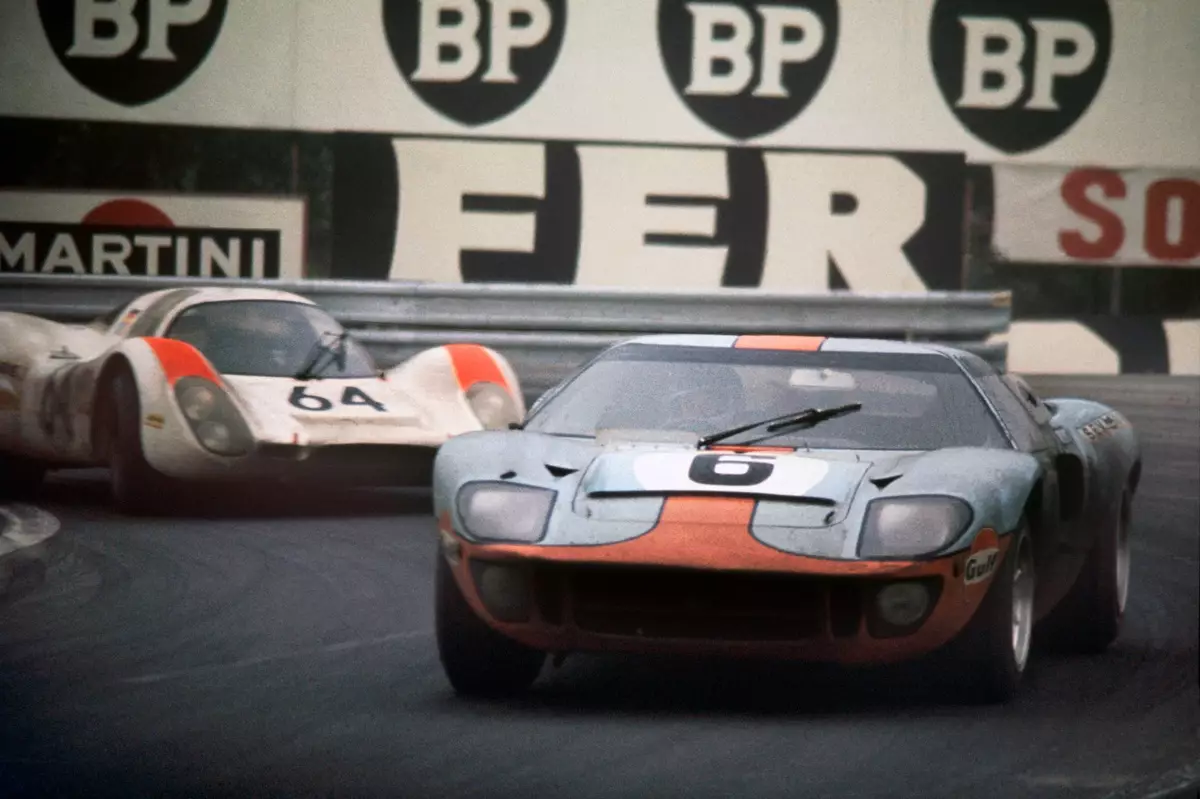Ford Motor Company is set to make a significant comeback in the world of endurance racing, targeting an overall victory at the iconic Le Mans 24 Hours in 2027. This marks a pivotal moment for the American automotive giant as it embarks on a World Endurance Championship (WEC) campaign, bringing with it the legacy and competitive spirit that have long defined the brand. The introduction of the LMDh prototype symbolizes not just participation, but a relentless ambition to claim triumph at Le Mans once more.
The Legacy of Ford at Le Mans
Ford’s history with the Le Mans race is steeped in legends and triumphs, having clinched victories from 1966 to 1969 with legendary models like the Ford MkII, MkIV, and the iconic GT40. These successes weren’t merely victories; they were monumental moments that reshaped the automotive landscape and cemented Ford’s status as a formidable force in motorsport. In a recent announcement made by Bill Ford, the executive chair of Ford, he underscored the significance of Le Mans in the brand’s heritage, recalling how the company bravely took on Ferrari — a fierce rival — and triumphed. His remarks, brimming with enthusiasm, echoed the aspirations of a company eager to reclaim its storied past at one of the most challenging races in the world.
The focus on the LMDh prototype represents Ford’s strategic push into the Hypercar class of the WEC, a competitive arena that not only elevates Ford’s motorsport profile but paves the way for comprehensive engagement across several premier racing championships. With plans for an all-factory effort managed by Ford Performance, the high-performance division of the company, the announcement signifies the seriousness of this endeavor. While specifics regarding the new LMDh prototype remain under wraps, there is anticipation surrounding its performance capabilities and design.
Moreover, Ford isn’t entering this venture in isolation; the company already possesses a footprint in the WEC through its participation in the LMGT3 category with two Mustang GT3s. The integration of its efforts in endurance racing alongside its return to Formula 1 in partnership with Red Bull Racing in 2026 illustrates a robust commitment to being a well-rounded contender in motorsports.
The return to Le Mans is not only a symbolic reunion with history but also a crucial aspect of Ford’s broader motorsport strategy, which includes competing in the World Rally Championship and the World Rally-Raid Championship. This diversification enhances Ford’s brand image and offers potential technological synergies across different racing formats. By positioning itself in multiple FIA championships, Ford aims to capture a broader audience and leverage its advancements in motorsport technology for commercial benefits in consumer vehicles.
Additionally, the synergies between different racing disciplines may yield innovations that could find their way into public vehicle lineups, thus establishing a direct connection between racing success and consumer perception. Ford’s historical prowess in prototype racing, especially noted in the IMSA GT Championship and Grand-Am series, reinforces its return to the forefront of endurance racing, showcasing a lineage of competitive spirit and engineering excellence.
Looking Ahead: Challenges and Expectations
While Ford’s return to Le Mans is met with excitement, it is essential to acknowledge the challenges that await. The landscape of endurance racing has evolved significantly, with technological advancements and new competitors raising the stakes. For Ford, the focus will not only be on developing a competitive LMDh prototype but also on establishing a robust operational framework to contest against established teams in the WEC. Furthermore, securing technical partnerships and leveraging insights from past experiences will be critical to overcoming potential hurdles.
Anticipation also surrounds Ford’s expected participation in the IMSA GTP class, showcasing the company’s strategy to engage both North American and international platforms. By sharing knowledge and innovations across championships, Ford can improve its competitiveness on every front.
Ford’s return to the Le Mans 24 Hours embodies more than just a nostalgic revival; it represents a calculated leap into a future filled with opportunities and challenges. As they prepare to ‘go like hell’ once more, fans and enthusiasts alike are watching closely, eager to see how this storied brand continues to shape the world of motorsport.

